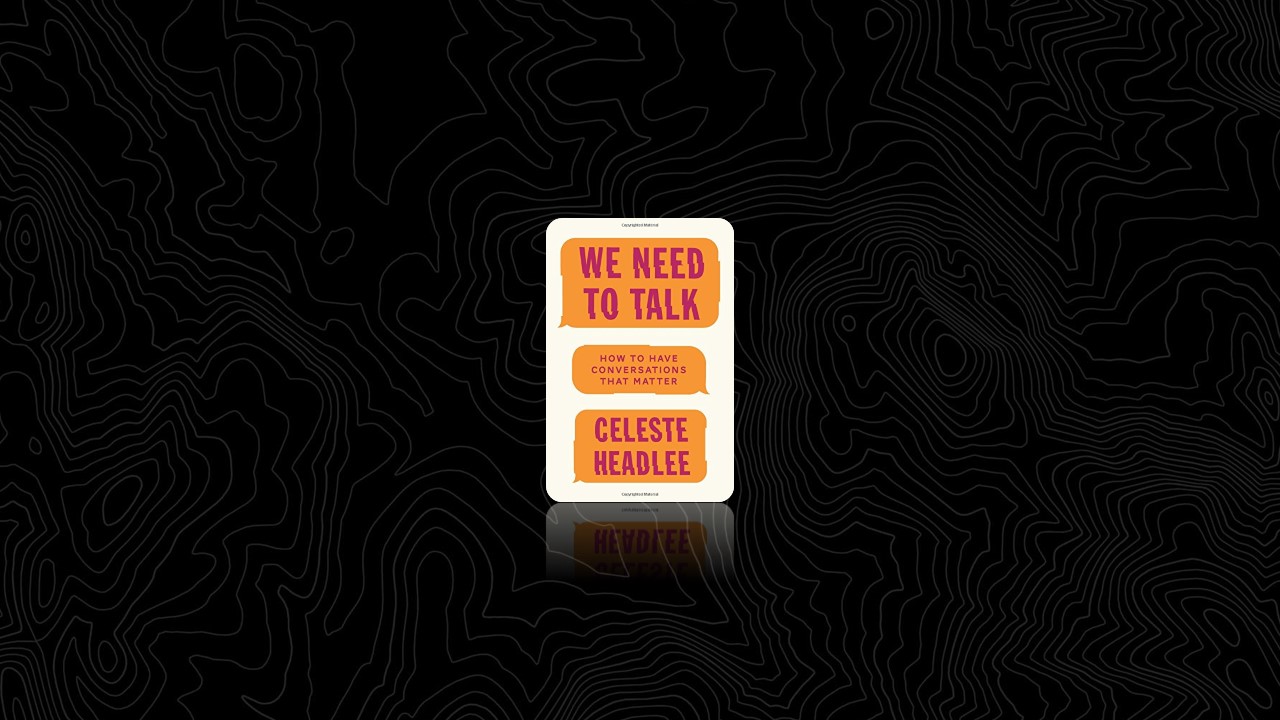Be There or Go Elsewhere
If you think that you can efficiently do two things at once, you are wrong, I’m sorry to say. Contrary to popular belief, human beings aren’t capable of multitasking.
The concept of multitasking was never actually intended to apply to people. It was originally used to describe a computer that runs multiple programs at the same time. But the human brain doesn’t work like a computer operating system. We can only focus on one thing at a time.
The same holds true if you’re having a conversation with a colleague while scrolling through your Facebook feed or talking to your auto mechanic while checking prices of transmissions on your tablet.
And yet, trying to multitask is very enjoyable to the brain. That rapid switching from action to action “creates a dopamine-addiction feedback loop, effectively rewarding the brain for losing focus and for constantly searching for external stimulation,” according to neuroscientist Daniel J. Levitin. In the end, we pay a high price for that dopamine rush. The rapid-fire switching in our neurons also increases the production of cortisol and adrenaline, two hormones that “can overstimulate your brain and cause mental fog or scrambled thinking.”
Therefore, if you want to have a good conversation, you must give it your full attention. I know how difficult this is, as our society values multitasking and we are surrounded by distractions. How many tabs do you normally keep open in your Internet browser? How many electronic devices do you now leave the house with? Just your smartphone? A smartphone and a tablet? If you’re called into a meeting, what do you bring with you?
If you want to get out of a conversation, get out of it. Tell the other person, politely, that you have too much on your mind to really listen to what they’re saying. You must commit to a conversation, even the brief ones, or walk away. If you’re too distracted, admit that to both yourself and the other person. Be present or be gone.
Get off the Soapbox
If you’re like most people, you probably tend to avoid engaging in conversation with people you think are bigoted. We imagine that those who are less educated or less intelligent than we are probably don’t have as enlightened a worldview.
But that would be your bias showing. While we assume that smarts and education make us more open-minded than people less educated or intelligent, the truth is that research shows that the smarter you are, the more susceptible you are to bias. “If anything,” the study reads, “a larger bias blind spot was associated with higher cognitive ability.”
This is all part of what’s called unconscious or implicit bias. These are biases that affect our judgment but that we’re unaware of and sometimes not even in control of. They are stereotypes, either positive or negative, of others that influence our views of them. Conscious biases are often choices we make about what we like or don’t like: you prefer employees who dress professionally or you like waiters who call you “sir.” Unconscious biases are harder to change because we often don’t know we have them.
But maybe you’re willing to accept that you have biases. You may think you’re aware of your own prejudices and are actively working to eliminate them. That might be true on some level, but there’s no evidence that people who are aware of their own biases are better able to overcome them than those who are unaware of their biases. And no matter how much thought you give to the issue, you’re probably not aware of all the prejudices that influence your thinking. They’re called unconscious biases for a reason, after all.
Keep it Short
Your conversations will probably never be as concise as an edited interview, but they don’t have to be as long and rambling as a Senate filibuster. Keeping conversations short is a discipline. It’s not easy, but it’s incredibly rewarding. If what you have to say is important and you want people to remember it, then keep it short and sweet.
That’s not to say that your conversations should be less than a minute, and they should certainly be longer than eight seconds. But if you prolong a conversation and continue talking for extended periods, you will probably lose the attention of the other person. Their focus will wander while you’re still talking. You’ll waste their time and your own.
Communication expert Alan Weiss says, “People have a tendency to tell others everything they know,” instead of considering what is necessary and what isn’t.
Take a moment to consider what you need to accomplish in a conversation before you utter your first word. Once you’ve conveyed your message, resist the temptation to keep talking. In conversation, as in so many things, quality trumps quantity.
Remember, a conversation is a game of catch; both parties have to want to play. Keeping it brief demonstrates consideration for your conversation partner. They may be too polite or concerned for your feelings to interrupt you or step away from you. Return their courtesy by not abusing their time and patience.
No Repeats
Repetition is the conversational equivalent of marching in place. It’s not interesting and it doesn’t move anything forward.
We sometimes assume that repeating information helps to drill it into someone’s head. After all, we’re taught from a young age to repeat the information we want to learn. We make flash cards to learn a foreign language. We repeat important dates in our heads: The Louisiana Purchase was signed in 1803. The Louisiana Purchase was signed in 1803. When we have a big test coming up, we cram until the wee hours of the morning, drilling names and dates and equations until our heads swim.
These types of repetition help you to retain new learning for one key reason: you’re the one repeating the information. Research shows that when we repeat something multiple times, it ups our chances of remembering it.
The benefit increases if we repeat that information to another person, but the benefit isn’t shared with the person listening. So, if you’re in a meeting and you repeat a deadline to your team four times, you’ll probably remember it well but your team members are no more likely to retain it than if you’d mentioned it only once.
Repetition can make us feel like we know the material well. But because our attention wanders after the first reading (or our iteration of it in conversation), our memory of that material becomes less and less precise. It’s an important point to consider in the context of conversations, because we frequently repeat ourselves when we’re talking to others. And often, when someone hears the same thing for a second and third time, they think, “I already know this,” and they stop listening.
It is ironic, in a way, that repetition prompts people to stop listening, because most of us tend to repeat ourselves when we fear we haven’t been heard. You tell your coworker to have a report ready by four p.m., but you see no acknowledgment that they heard you. So, you rephrase it: “If it’s not ready by four p.m., I won’t have time to send it to the corporate office.” But again, he or she fails to respond in a way that reassures you. So, you rephrase yet again.
The thing is, just because someone doesn’t say, “Yes, I hear and understand what you’re saying,” it doesn’t mean that he or she didn’t hear and understand you. People don’t always confirm that they’ve heard important information. The vast majority of the time, there’s no need to restate what you’ve said.
That’s a Great Question
There’s an old trick that reporters use to get people to say interesting things. We start our questions with one of six words: who, what, where, when, why, and how.
This practice is known as asking open-ended questions, and you’ve probably heard of it or used some form of it yourself, whether in a job interview or on a date. The genius of open-ended questions is that they can’t be answered with a simple yes or no. The most uncomplicated questions often elicit a complicated response, just as a detailed question can result in a one-word answer.
Closed-ended questions—often yes-or-no questions—are also important tools and can be used effectively in many different circumstances. “Is your phone broken?” “Do you need a ride home?” Those are just two examples out of probably trillions that are best answered with a yes or no. As with everything else in conversation, context matters and no advice is absolute. If you’re just trying to get information as quickly and efficiently as possible, a closed-ended question is the perfect choice. It’s specific, to the point, and yields quick results.
Using open-ended questions is a discipline that takes practice. Not every question can begin with “who,” “what,” “where,” “why,” “when,” and “how.” I strive to begin about half of my questions that way, and even that is sometimes a struggle. But the quality of the response you receive after a good, open-ended question is immediately noticeable.
“We get wise by asking questions,” wrote novelist James Stephens, “and even if [they] are not answered, we get wise, for a well-packed question carries its answer on its back as a snail carries its shell.”
Sometimes a question can be an inspiration, an impetus to further exploration and discovery. Some of the greatest innovations of humankind began with simple questions.
You Can’t Know Everything
There are any number of reasons why we pretend to know things we don’t or act as if we possess greater knowledge of a subject than we really do. The first is simple: we want to impress people. It’s natural to want other people to think we’re smart. The irony is that when you say things that aren’t entirely accurate, you appear less intelligent than if you’d said nothing at all. It’s like when a young kid uses big words but pronounces them incorrectly.
Another reason we tend to posture is because we are reluctant to ask for help. In his book Help: The Original Human Dilemma, Garret Keizer argues that most people actively avoid seeking assistance from others. “There is a tendency to act as if [asking for help] is a deficiency,” Keizer told the New York Times in an interview. “That is exacerbated if a business environment is highly competitive within as well as without. There is an understandable fear that if you let your guard down, you’ll get hurt, or that this information you don’t know . . . will be used against you.”
Asking for help in a professional setting might betray what you don’t know about your job, which could put you at risk. But many of us refuse to ask for help in even mundane situations. (Raise your hand if you refuse to ask for directions when you’re lost.) Admitting that you don’t know something and asking someone else for information can feel awkward. It can feel like exposing a weakness. But not admitting it, or worse, saying something that may not be true, is a near-certain way to erode the respect of your peers.


